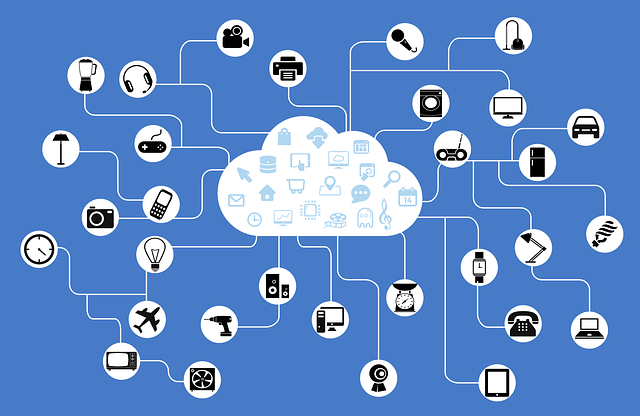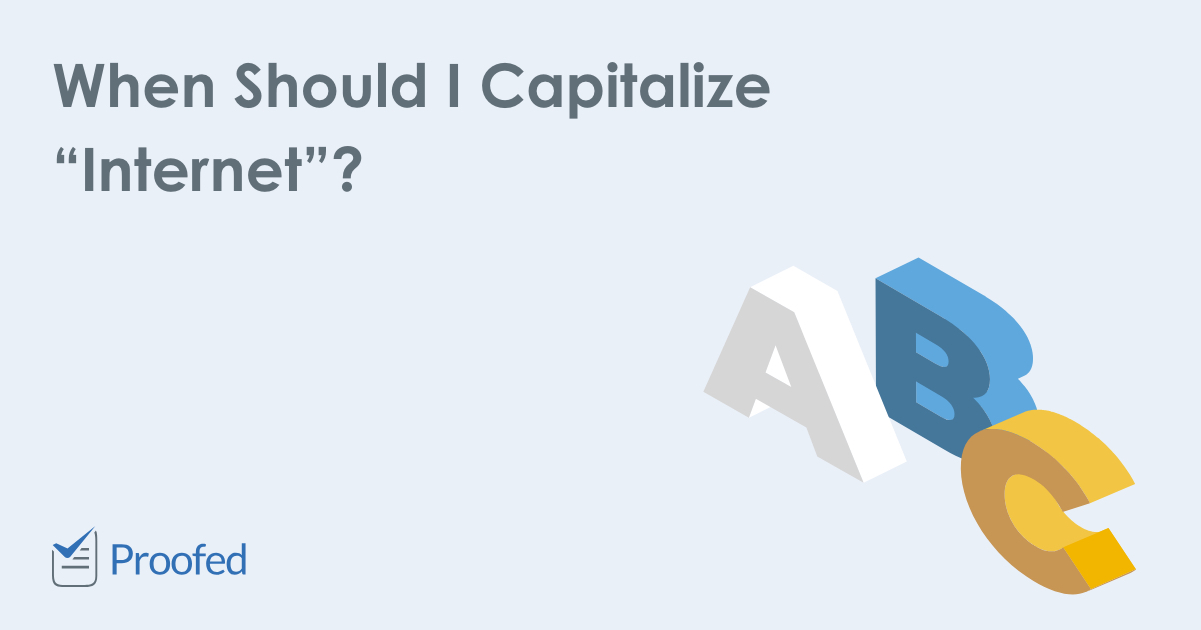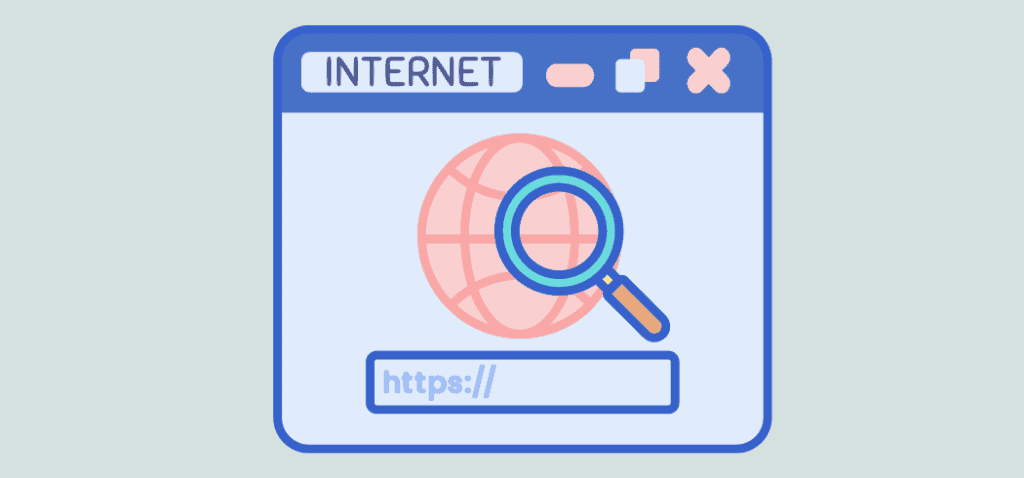The question of whether to capitalize ‘internet’ is controversial. It has even inspired its own Wikipedia article. But we’re here to make writing easy, so we’re going to ignore the controversies and set out the basics of when to capitalize ‘internet’.
Internet as a Proper Noun
Unless it appears at the start of a sentence, you should only capitalize ‘Internet’ when it is a noun. More specifically, you can capitalize it when referring to the Internet (i.e. the thing that hosts the World Wide Web).

Thus, ‘Internet’ is a proper noun, a word that names a unique thing. So ‘the Internet’ is like the name of a person (e.g. Delia) or city (e.g. Norwich).
Using the capital ‘I’ was common in the early days of the Web, especially in technical writing. However, as the internet has become part of our lives, most people now write it with a lowercase ‘i’ instead.
Dialect can make a difference, too, as capitalizing ‘Internet’ is more common in American English than British English. Ultimately, though, it is a matter of preference. For instance, both of these sentences are fine:
I looked up advice on the Internet.
The internet is full of contradictory advice.
The most important thing is consistency. So if you write ‘Internet’ in one part of a document, you should use the same capitalization throughout. You may also want to check your university/employer’s style guide.
However, there are a couple of situations where you should never capitalize this term. We will look at each of the following below:
- Using ‘internet’ to refer to interconnected networks in general.
- Using ‘internet’ as an adjective.
Internet as a Common Noun
The word ‘internet’ is a contraction of ‘interconnected network’. We can therefore use it to describe any set of interconnecting networks. And when referring to interconnected networks in general, we do not capitalize ‘internet’ because it is a common noun rather than a proper noun.
Find this useful?
Subscribe to our newsletter and get writing tips from our editors straight to your inbox.
In other words, while the Internet is an internet, it is not the only possible internet! If you are involved with computers in your work or studies, then, you would not capitalize ‘internet’ if you were using it in this generic sense.
However, in day-to-day life, ‘internet’ almost always refers to the internet.
Adjectival Internets
We can also use ‘internet’ as an adjective. For example:
My internet connection has dropped out again.
Here, the word ‘internet’ modifies the noun ‘connection’. This means we’ve used it like an adjective (something known as a noun adjunct). Typically, when ‘internet’ is used as a modifier like this, you do not need to capitalize it.
Summary: When Should I Capitalise Internet?
You can capitalize the ‘i’ in ‘internet’ if you use it as a proper noun, but this is a matter of choice. At Proofed, for example, we prefer ‘internet’. But this is because we don’t see the need to capitalize it, not because ‘Internet’ is wrong.
There are no hard and fast rules about capitalizing ‘internet’. However, if you want to capitalize it, keep the following in mind:
- You can capitalize ‘Internet’ when it refers to the infrastructure that hosts the World Wide Web, but this is a matter of choice.
- Do not capitalize ‘internet’ when using it as a noun adjunct to modify another noun (e.g. ‘internet users’ or ‘internet browser’).
- Do not capitalize this term when referring to internetworking in general.
- If you are writing for your studies or job, you may have a style guide available. Check this for advice on capitalization.
- Make sure to apply capitalization consistently in your writing.
And if you’d like more help with your writing, you can have it proofread.
From Wikipedia, the free encyclopedia
Capitalization of Internet (versus internet) refers to the orthographic conventions for when the word should be capitalized. When referring to the global system of interconnected computer networks, the conventions have varied over time, and vary by publishers, authors, and regional preferences.
The Internet versus generic internets[edit]
The Internet standards community historically differentiated between an internet, as a short-form of an internetwork, and the Internet: treating the latter as a proper noun with a capital letter, and the former as a common noun with a lower-case first letter. An internet is any set of interconnected Internet Protocol (IP) networks. The distinction is evident in Request for Comments documents from the early 1980s, when the transition from the ARPANET, funded by the U.S. Department of Defense, to the Internet, with broad commercial support, was in progress, although it was not applied with complete uniformity.[1][2]
Another example from that period is IBM’s TCP/IP Tutorial and Technical Overview from 1989 (updated in 1998), which stated that:
The word internet (also internetwork) is simply a contraction of the phrase interconnected network. However, when written with a capital «I», the Internet refers to the worldwide set of interconnected networks. Hence, the Internet is an internet, but the reverse does not apply. The Internet is sometimes called the connected Internet.[3]
In the Request for Comments documents that define the evolving Internet Protocol standards, the term was introduced as a noun adjunct, apparently a shortening of «internetworking»[4] and is mostly used in this way.[citation needed]
As the impetus behind IP grew, it became more common to regard the results of internetworking as entities of their own, and internet became a noun, used both in a generic sense (any collection of computer networks connected through internetworking) and in a specific sense (the collection of computer networks that internetworked with ARPANET, and later NSFNET, using the IP standards, and that grew into the connectivity service we know today).[citation needed]
In its generic sense, «internet» is a common noun, a synonym for internetwork; therefore, it has a plural form (first appearing in the RFC series RFC 870, RFC 871 and RFC 872) and is not capitalized.[citation needed]
In a 1991 court case, Judge Jon O. Newman used it as a mass noun: «Morris released the worm into INTERNET, which is a group of national networks that connect university, governmental, and military computers around the country.»[5]
Evolution of the word[edit]
Conventions for the capitalization of Internet have varied over time. The term Internet was originally coined as a shorthand for internetwork in the first specification of the Transmission Control Program, RFC 675, by Vint Cerf, Yogen Dalal, and Carl Sunshine in 1974.[6] Because of the widespread deployment of the Internet protocol suite in the 1980s by educational and commercial networks beyond the ARPANET, the core network became increasingly known as the Internet, treated as a proper noun. The Oxford English Dictionary says that the global network is usually «the internet», but most of the American historical sources it cites use the capitalized form.[7] Increasingly, the proper noun sense of the word takes a lowercase i, in orthographic parallel with similar examples of how the proper names for the Sun (the sun), the Moon (the moon), the Universe (the universe), and the World (the world) are variably capitalized in English orthography.
The spelling internet has become often used, as the word almost always refers to the global network; the generic sense of the word has become rare in non-technical writings. As a result, various style manuals, including The Chicago Manual of Style, the Associated Press’s AP Stylebook, and the AMA Manual of Style, revised their formerly capitalized stylization of the word to lowercase internet in 2016.[8] The New York Times, which followed suit in adopting the lowercase style, said that such a change is common practice when «newly coined or unfamiliar terms» become part of the lexicon.[9] The same trend has also applied to mentions of the Web (the World Wide Web) as the web, despite some styling holdouts.[citation needed]
In 2002, a New York Times column said that Internet has been changing from a proper noun to a generic term.[10] Words for new technologies, such as phonograph in the 19th century, are sometimes capitalized at first, later becoming uncapitalized.[10] In 1999, another column said that Internet might, like some other commonly used proper nouns, lose its capital letter.[11]
Capitalization of the word as an adjective (specifically, a noun adjunct) also varies. Some guides specify that the word should be capitalized as a noun but not capitalized as an adjective, e.g., «internet resources.»[12]
Usage[edit]
Increasingly, organizations that formerly capitalized Internet have switched to the lowercase form, whether to minimize distraction (The New York Times)[9] or to reflect growing trends as the term became generic (Associated Press Stylebook).[13] According to Oxford Dictionaries Online, in 2016 Internet remained more usual in the US, while internet had become predominant in the UK.[14]
Organizations and style guides that capitalize Internet include the Modern Language Association,[15] Garner’s Modern English Usage,[16] the Internet Engineering Task Force,[17] CloudFlare,[18] Ars Technica,[19] and the Internet Society.[20] Organizations and style guides that use lowercase internet include Apple,[21] Microsoft,[22] Google,[23] Wired News (since 2004),[24] the United States Government Publishing Office,[25] the Associated Press (since 2016),[26] The New York Times (since 2016),[27] The Chicago Manual of Style (since 2017),[28] APA style (since 2019),[29][30] The Guardian, The Observer,[31] BuzzFeed and Vox Media.[14]
References[edit]
- ^ RFC 871 (1982) «The ‘network’ composed of the concatenation of such subnets is sometimes called ‘a catenet,’ though more often—and less picturesquely—merely ‘an internet.‘«
- ^ RFC 872 (1982) «[TCP’s] next most significant property is that it is designed to operate in a ‘catenet’ (also known as the, or an, ‘internet’)»
- ^ ISBN 0-7384-2165-0 (1998) section 1.1.2. Murhammer, Martin; Atakan, Orcan; Bretz, Stefan; Pugh, Larry. «TCP/IP Tutorial and Technical Overview». Open Library.
- ^ The form first occurring in the RFC series is «internetworking protocol», RFC 604: «Four of the reserved link numbers are hereby assigned for experimental use in the testing of an internetworking protocol.» The first use of «internet» is in RFC 675, in the form «internet packet».
- ^ Post, David. «The History of the Internet, Typography Division, Cont’d». Volokh Conspiracy. Retrieved 16 August 2015.
- ^ Vint Cerf, Yogen Dalal, Carl Sunshine, Specification of Internet Transmission Control Program, RFC 675, (December 1974)
- ^ «internet». Oxford English Dictionary (Online ed.). Oxford University Press. (Subscription or participating institution membership required.)
- ^ McCoy, Julia (6 April 2017). «Chicago Style Gets With the Online Grammar Times (A Recap)». Express Writers. Retrieved 30 January 2020.
- ^ a b Corbett, Philip B. (1 June 2016). «It’s Official: The ‘Internet’ Is Over». The New York Times. ISSN 0362-4331. Retrieved 30 January 2020.
- ^ a b Schwartz, John (29 December 2002). «Who Owns the Internet? You and i Do». The New York Times. Archived from the original on 17 April 2009. Retrieved 19 April 2009.
Allan M. Siegal, a co-author of The New York Times Manual of Style and Usage and an assistant managing editor at the newspaper, said that ‘there is some virtue in the theory’ that Internet is becoming a generic term, ‘and it would not be surprising to see the lowercase usage eclipse the uppercase within a few years.’
- ^ Wilbers, Stephen (13 September 1999). «Errors put a wall between you and your readers». Orange County Register. Santa Ana, California. p. c.20.
If you like being ahead of the game, you might prefer to spell internet and web as internet and web, but according to standard usage they should be capitalized. Keep in mind, however, that commonly used proper nouns sometimes lose their capital letters over time and that Internet and Web may someday go the way of the french fry.
- ^ E.g. «MIT Libraries House Style». MIT Libraries Staff Web. 14 August 2008. Archived from the original on 26 April 2009. Retrieved 19 April 2009.
- ^ Hare, Kristen (2 April 2016). «AP Style alert: Don’t capitalize internet and web anymore». Poynter. Archived from the original on 16 February 2019. Retrieved 21 February 2021.
- ^ a b Martin, Katherine Connor (5 April 2016). «Should you capitalize the word Internet?». Oxford Dictionaries Online. Archived from the original on 1 April 2019. Retrieved 9 April 2016.
- ^ MLA Handbook. The Modern Language Association of America, ninth edition. 2021. ISBN 1603293515.
- ^ Garner, Bryan A. (2016). Garner’s Modern English Usage. New York, NY: Oxford University Press. ISBN 978-0190491482.
- ^ «Internet Security Glossary, Version 2».
- ^ «Cloudflare’s Annual Founders’ Letter».
We always capitalize the I in Internet, in spite of what the AP style guide has said since 2016, because it’s a proper noun, we believe there is and only should be one, and we have an enduring respect for what a miracle it is that it exists.
- ^ Bangeman, Eric. «Ars Technica style guide».
Internet should always be capitalized.
- ^ «Editorial Essentials».
Always capitalize «Internet» when talking about the global, public Internet, whether you’re using it as a noun («the Internet») or a qualifier («Internet access»).
- ^ «Apple Style Guide». help.apple.com. Archived from the original on 28 July 2017. Retrieved 29 March 2021.
- ^ pallep. «internet, intranet, extranet — Microsoft Style Guide». docs.microsoft.com. Retrieved 29 March 2021.
- ^ «Word list | Google developer documentation style guide». Google Developers. Retrieved 29 March 2021.
- ^ Long, Tony (16 August 2004). «It’s Just the ‘internet’ Now». Wired. Archived from the original on 29 April 2009. Retrieved 19 April 2009.
… what the internet is: another medium for delivering and receiving information.
- ^ U.S. Government Publishing Office Style Manual (PDF). 2017. p. 65.
- ^ Hare, Kristen (2 April 2016). «AP Style alert: Don’t capitalize internet and web anymore». The Poynter Institute. Retrieved 3 April 2016.
The changes reflect a growing trend toward lowercasing both words, which have become generic terms
- ^ Bromwich, Jonah (24 May 2016). «Bulletin! The ‘Internet’ Is About to Get Smaller». The New York Times. Retrieved 26 May 2016.
- ^ McCoy, Julia (6 April 2017). «Chicago Style Gets With the Online Grammar Times (A Recap)».
- ^ «Preferred Spellings». apastyle.apa.org. Retrieved 25 January 2021.
- ^ McAdoo, Timothy (10 March 2011). «Spelling Success in APA Style». blog.apastyle.org.
- ^ «Guardian and Observer style guide». Guardian News and Media Limited. Retrieved 19 April 2008.
internet, net, web, world wide web. See websites.
External links[edit]
Look up Internet in Wiktionary, the free dictionary.
- Internet, Web, and Other Post-Watergate Concerns, The Chicago Manual of Style
Have you seen the word “Internet” written with both a small and a capital “i,” and you’re confused about which form is correct? I know, me too. Both capitalization and the lack of it are correct, but you need to know one basic rule. Let’s discover when the spelling of Internet should be capitalized and when to avoid it so you always get it correct with writing.
Capitalizing the Word Internet
The word “internet” can be both a proper noun and a regular one, so you’ll often find it with both a capital “I” and a lowercase “i.” When referring to the WWW as a whole, it’s a proper name, and it should be capitalized. When used as a regular noun, you can write “internet” without a capital letter.
The word “internet” is probably the most used term in the modern world right now. It refers to the vast network of connected computers and devices, allowing data to be transmitted and shared quickly and easily.
Do You Capitalize the Internet?
Despite its widespread common usage, many people might not realize that this word should always be written with the capital “I.” This is because it originated as a proper noun, the name of a specific place or thing.
Do We Say Internet or the Internet?
Although many people debate whether to say “Internet” or “the Internet,” the truth is that both forms are technically correct. For example, internet browser vs. Internet Explorer. Both are nouns, but the latter one is an actual proper name of something.
The Merriam-Webster dictionary defines the Internet as “a global computer network made up of networks of smaller, individually owned and operated, local computer networks.”
In this sense, the term “Internet” refers to the network as a whole, without distinguishing one single network from another.
However, since any search engine can pull up information on just about any topic under the sun, most people use the phrase “the Internet” to refer specifically to online resources related to a particular subject.
Is Internet Capitalized in MLA?
The word “internet” is always capitalized in MLA style.
MLA style rules refer to guidelines and standards for formatting academic papers and other written content. These guidelines are generally widely accepted in literary studies, both within academia and outside circles.
They are designed to help writers craft clear and consistent content while providing a uniform structure that makes it easier for readers to navigate any text.
At its core, MLA style is based on three key principles: crafting well-organized sentences, clearly citing sources, and formatting text according to accepted standards.
Overall, these guidelines are designed to promote clarity and avoid common errors in style and usage. While there may be some variation depending on the specific discipline or assignment, MLA style is generally seen as an effective tool for communicating effectively in the academic world.
Difference Between ‘Internet’ with a Capital Letter and ‘Internet’ with a Small Letter
Internet, with a capital “I,” is distinguished from any generic interconnection of smaller computer networks since it is a global network. The capitalization of the Internet symbolizes the importance of this worldwide network and its formal acknowledgment as a separate entity.
The capitalization of “Internet” is still required by several reputable news organizations, style manuals, and dictionaries in the modern era.
The Internet used to be a proper noun. But as time has gone on and it has become increasingly ubiquitous in everyday life, it has morphed into a generic word. Internet-savvy youth treat the Internet as naturally as traditional forms of mass media like TV and radio. As people’s conceptions of the Internet broadened, the term “Internet” began to be used more casually.
Internet As a Proper Name
Is “Internet” a proper noun? It is when it’s used to refer to the World Wide Web as a whole. In such cases, you should capitalize this word just like any other proper name, like the name of a city, a person, or a country.
Internet As a Common Noun
Because “internet” is an abbreviation for “interconnected network,” it can refer to any collection of interconnected networks. Even though “internet” is a proper name, it is not capitalized when referring to a collection of linked networks.
Final Thoughts
Should “internet” be capitalized? The real answer is that it depends on context. When writing about the Internet as a whole entity, capitalize it. When referring to individual websites, services, or other online entities, don’t capitalize it. It’s as simple as that. So, save this guide as a reference, and you’ll never get it wrong!
Historically, the word internet was capitalized since it is a proper noun, but in the last few years the trend has been to lowercase the word internet since it is now a general noun.
Update: In 2016, Associated Press editors decided to reverse a long-standing tradition of capitalizing the word Internet. Since 2016, the AP stylebook now recommends lowercasing “internet” and “web.”
There is continual debate around whether the word Internet should continue to be capitalized since it has established itself into everyday life. Since the AP Stylebook announcement in 2016, the trend across style guides has been to lowercase the word internet.
In fact, the UK has mostly transitioned to referring the to Internet with a lowercase “i” as you can see in this study done by Oxford Dictionaries. In the US, about 65% of the population refers to Internet with a capital “I” versus in the UK, only about 25% of the population uses a capital “I.” In fact, the earliest use of the word, cited in the Oxford English Dictionary from 1974, was with a lowercase i since at that time there were multiple internets.
Is World Wide Web Capitalized?
“The World Wide Web,” often used to mean the same thing as “internet,” is the formal name of the internet as we know it today invented by Tim Berners-Lee. It also goes by “The Web” for short. According to the MLA style guide, both “The World Wide Web” and “The Web” should be capitalized since they are proper nouns.
While the debate continues, you should always follow the standard title capitalization rules for capitalizing titles regardless of the outcome of the Internet debate.
The question of whether to capitalize or not to capitalize the word ‘internet’ raises a lot of controversy and debate among reference guides, grammarians, and linguistics magazines. You simply need to understand the technical distinction between an internet and the Internet.
Historically, the word «internet» was capitalized as it was first introduced as a proper noun, and was to be capitalized when used as one. However, in the past few decades, the trend has changed as people tend to use it as a general term and prompted the need to lowercase it.
Going by general rules of capitalization, the word ‘internet’ should only be capitalized if used as a proper noun. Some people believe that the word should be capitalized, while others think there is no earthly reason to capitalize it.
Definition of «Internet»
Most dictionaries define the internet or Internet as a global system of interconnected computer networks that use the internet protocol suite known as IP to communicate between devices and networks.
Another popular definition is a network of networks that comprises public, private, business, government, and academic networks of local to global scope linked by a vast array of electronic, optical, and wireless networking technologies.
The word was first discovered in the 1970s, denoting a computer network connecting more than one small network.
Examples:
- Luckily today, we can all use our smartphones to connect to the internet.
- He found out about the snow storm from the internet.
- She met her husband through the internet on one of those online dating sites.
- If you didn’t carry packed lunch, you could always order online because you can access the internet.
- How our children are interacting with the internet today will determine whether they pass or fail their examinations.
- If you still feel you need more information, you can look it up on the internet.
- The university now offers courses on how to use the internet, which can also be done online.
When Should You Capitalize The Word «Internet?»
There is really no big reason for capitalizing unless being used as a proper noun in a sentence. The capitalization rules are very clear; capitalize proper nouns, which are the official names of people, places, objects, or events. The internet doesn’t fall under any of these.
Originally, it was capitalized to differentiate an internet-any network of interconnected computers and the internet, which is the global network that anyone can access. Today, the word internet is a ‘generic’ term for communication medium. Since the 2016 announcement by the AP stylebook, the trend across most styles has been to lowercase the word. Let’s look at what the debaters have to say about capitalizing the ‘internet.’
For Capitalizing
There are many reasonable arguments in favor of capitalizing the word ‘internet.’ Many people think and feel that ‘internet’ is a proper noun and should be treated as so. Others claim that it is best if it was left capitalized from the beginning as most people are already used to capitalizing it. The New York Times, the Communications of the ACM and Time and the Associated Press capitalize it.
Some people also feel that ‘internet’ refers to a place in a way, which is also the reason why we capitalize the words Venus, Mars and Jupiter. This argument further deepens how we use the word ‘internet’ because, in most cases, we are referring to a particular, single institution, which actually makes it a proper noun. Those who counter the opinion argue that it is not a real place that one can go, and that’s why they believe it should be used interchangeably.
There is also a popular stand that if the article ‘the’ were removed, capitalization would be imminent. For instance, we don’t say the God, the Mars, or the Venus.
Examples:
- The Internet was created to connect all of us remotely and make the world a smaller place to navigate.
- Thanks to the internet, people can work remotely from anywhere in the world.
- The internet has made it easier for small businesses to reach a global audience.
- With the internet, we can shop, bank, and connect with others without leaving our homes.
For Decapitalizing
A significant percentage of users are for decapitalization of the word ‘internet.’ If the word can go onto the notes without the article ‘the,’ then there would be no need to decapitalize it. Other parties also believe that since we don’t capitalize the word ‘universe,’ which enables us to exist, then there is no need to capitalize ‘internet ‘either. The majority have one argument–that the ‘internet’ has become too commonly used to be capitalized. Most people simply refer to the internet as a standard or general term.
Examples:
- How can we complete assignments with such a poor internet connection?
- The fact that I can use the internet from just about anywhere in my house is fantastic.
- Children should be taught on how to correctly use the internet for their own moral and academic good.
The «Internet» as a Proper Noun
The main reason we should capitalize on the internet is that it can be used as a proper noun. We also capitalize on the word if it appears at the beginning of a sentence. Despite all this noise, ‘internet’ is still regarded as a proper noun as it is a unique name thing. When it was first introduced, everyone used to uppercase it like the name of a specific place (e.g., MT Kilimanjaro, Miami Beach, etc.). A lot of technical writing also requires the capitalization of unique words.
Capitalizing this word also depends on the dialect; most major American and Canadian publications prefer to capitalize ‘internet.’ Therefore, it is safe to say that uppercasing it is more common in American English than in other dialects. However, there is room for choice and preference. Some of the uppercase examples include:
- She checked the Internet for advice.
- Always fact-check your work before submitting it because the Internet is full of contradictory resources.
- Education today majorly relies on the resources uploaded on the Internet.
- If you decide to capitalize on the Internet, it’s advisable to use the same rule throughout the document.
The «Internet’ as a Common Noun
As we already saw, the internet was initially used as a proper noun. While this is still acceptable today, the word’s general use makes it more of a common noun than a proper noun. It is a set of interconnected networks. When we define or refer to interconnected networks in general, we do not need to capitalize it because we refer to a common noun.
In simple words, while the internet is simply the internet, and not THE only internet. Therefore, you are unlikely to need the common term ‘internet’ in your daily life, but if you are involved with computers in your studies or work, just don’t capitalize it unless you are referring to the ‘Internet.’
Examples:
- The internet is full of scammers, be careful what you share there.
- She doesn’t talk much as she is always glued to her phone, checking things on the internet.
- Did you know that the internet is also an adjective?
The «Internet» as an Adjective
The word internet can also be used as an adjective in sentences. When used as an adjective, we do not use uppercase.
Here are some examples
- His internet connection just dropped out again.
- My internet speed is always the same every day.
Here, the word ‘internet, modifies the nouns ‘connection’ and ‘speed’ meaning that we have used it as an adjective. In such a case, we do not capitalize on it.
Synonyms of «Internet»
- Network
- Net
- Cyberspace
Other «Internet» Sentence Examples
- The internet is an information superhighway.
- Children should be educated on the proper ways to use the internet with their electronic devices such as smartphones and tablets.
- The internet has revolutionized the way we communicate and access information.
- The world is changing and the only way to keep up with it is by using the internet for knowledge.
- Should the internet be free?
Final Thoughts
It is no longer uncommon to decapitalize words that entered the language as unique entities but ended up getting decapitalized along the way. Others were used as separate words, but today are hyphenated or condensed as single words. Such changes happen when there is a wide usage of a word. Words in the technology domain keep changing and evolving and, in most cases, end up getting capitalized or shorted as they enter common usage. Some good examples of words that were decapitalized include email, homepage, and website.
The ‘internet’ is also headed in the same direction where most people believe is decapitalization. However, the delay in decapitalization is caused by the fact that ‘internet’ can be used validly as a proper noun, though most people are already writing it in lowercase. We hope this guide helps you better understand how to write the word ‘internet ‘in your sentences.
Shawn Manaher is the founder and CEO of The Content Authority. He’s one part content manager, one part writing ninja organizer, and two parts leader of top content creators. You don’t even want to know what he calls pancakes.






